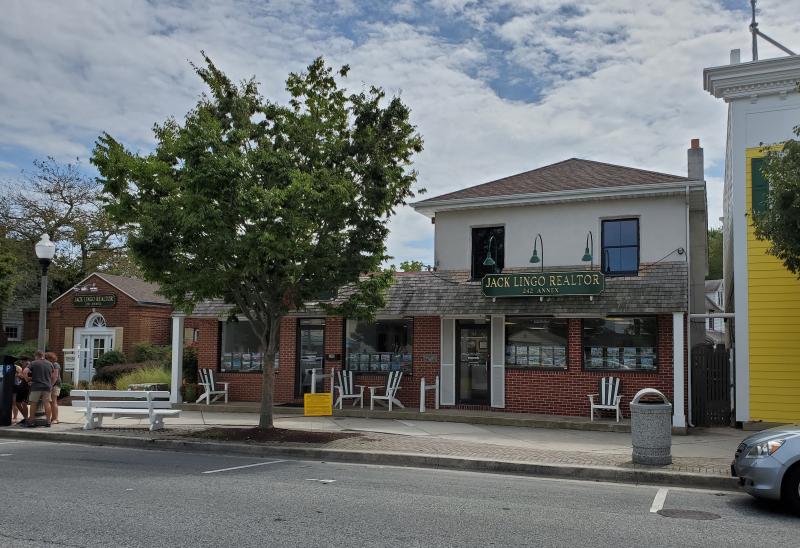Citing ambiguities in Rehoboth Beach’s zoning code, the Delaware Supreme Court has reversed a Superior Court ruling upholding a decision by the city’s board of adjustment to include a deck and staircases as part of gross floor area calculations for a proposed project at 240 Rehoboth Ave.
At the heart of the original denial was the inability of Lingo Asset Management to provide an additional parking spot after Damalier Molina, the city’s building official at the time, said a proposed second-level egress walkway counted toward gross floor area. He determined a proposed walkway enclosed by a railing constituted an exterior wall.
Twice Lingo went before the city’s board of adjustment to get a variance. Twice it was denied. The Superior Court ruling supporting the board’s decision was issued in August 2021. Attorney David Hutt, representing Lingo, appealed the lower court’s decision soon after. Hutt and board of adjustment Solicitor Fred Townsend presented their cases to Supreme Court Justices Gary F. Traynor, Tamika Montgomery-Reeves and Karen Valihura. Traynor issued an opinion July 19.
“The Rehoboth zoning code in effect at the time of Lingo’s application did not clearly and unambiguously establish that the proposed egress structure would increase the gross floor area of 240 Rehoboth Ave.,” said Traynor.
In the time since the original denial, the city has amended zoning code, which now specifies that porches, decks and exterior stairwells contribute to gross floor area, said Traynor.
“This decision applies to the version of the zoning code that was in effect when Lingo sought its permit,” said Traynor.
Traynor said in order for the board to enforce its interpretation of the zoning code against Lingo, it must be able to defend its reading as the only reasonable construction.
“This the board cannot do. As we explain in more detail below, the zoning code in effect when Lingo sought its permit did not define ‘exterior walls,’ and Lingo offers a common-sense, natural reading of the term that does not cover the railings at issue in its proposal,” said Traynor. “On the other hand, the board proffers a reading that is strained at best. Because we resolve zoning ambiguities in favor of the property owner, the board’s decision must be reversed.”
The board argued the definitions of structure, building and wall all work together to create an unambiguous interpretation of the gross floor area definition.
“We do not believe that the board offers the only reasonable interpretation of the zoning code in this case. Rather, even if it is technically possible to construct the board’s reading from the zoning code’s defined terms, the board’s construction is strained and does not preclude Lingo’s interpretation,” said Traynor.
Chris Flood has been working for the Cape Gazette since early 2014. He currently covers Rehoboth Beach and Henlopen Acres, but has also covered Dewey Beach and the state government. He covers environmental stories, business stories and random stories on subjects he finds interesting, and he also writes a column called Choppin’ Wood that runs every other week. He’s a graduate of the University of Maine and the Landing School of Boat Building & Design.


















































